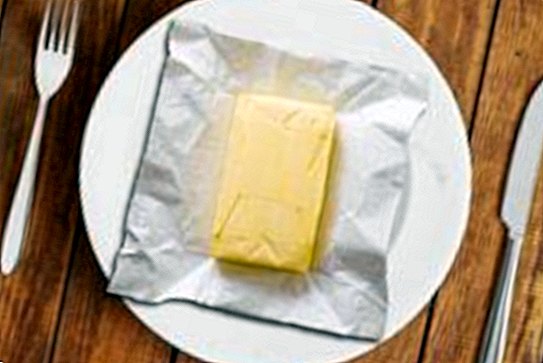The truth about ... fat

What is better - butter or margarine?

Sometimes margarine is praised because of the high proportion of polyunsaturated fatty acids in the sky, sometimes it is demonized because of allegedly contained trans fatty acids. The truth is: The problem with the trans fatty acids in margarine has meanwhile got the industry under control. At the same time, however, butter has also received a good deal of popularity: Recent studies refute the supposedly heartbreaking effect of butter. Obviously, how much saturated fat we eat has less impact on cholesterol than we thought. And: butter is not the same butter. If the milk comes from cows that are fed appropriately (the grazing instead of being fattened with grain), the butter produced from it has a high content of healthy omega-3 fatty acids. It is therefore 1: 1 for butter and margarine - and we can decide for ourselves what we like better.
Conclusion: With rapeseed oil, fatty fish and nuts, we best meet the need for polyunsaturated fatty acids. Whether we prefer butter or margarine on bread, then it does not matter.
Is low-fat diet the right way to the ideal weight?
But do not we have to hold back on fat - whether butter or margarine - if we want to lose weight anyway? After all, fat contains almost twice as many calories as carbs. Yet: Fat does not make you fat! That's what the big European EPIC study showed, whether we're eating more or less fat, whether we're eating saturated or unsaturated fatty acids - body weight does not change. The decisive factor is and remains the entire calorie intake.
Conclusion: If you want to lose weight, you do not have to banish fatty foods completely. The goal is and remains to save calories - whether they come from fat, protein or carbohydrates.
Is it possible to accelerate fat burning with slimming pills like "Alli" or "Xenical"?
The idea is seductive: slimming pills such as the much-sought-after and over-the-counter "Alli" or the prescription "Xenical" to block fat digestion and thus prevent the cream cake settles on the hips.
The reality is not quite as convenient: The intake should be made according to the manufacturer only with a fat and calorie-reduced diet - so rather without cream cake. If you change the diet, losing weight with support of the pill actually works better. However, only at first glance: The participants of a study that swallowed the weight loss pill "Alli", lost after six months on average 2.3 kilos more than the peer group. However, success usually does not last long. One year after the discontinuation of the drug "Xenical", there was no longer any benefit over the placebo group. And at a cost of almost 300 euros in six months and sometimes unpleasant side effects such as flatulence, fluid stools or even fecal incontinence. The US Food and Drug Administration, which is responsible for drug approval in the United States, has also counted 32 cases of serious liver damage after taking the drug in the past decade. So, really, a bitter pill to swallow.
Conclusion: The slimming pills are expensive and the intake is sometimes associated with unpleasant side effects. Long-term successes remain off.










